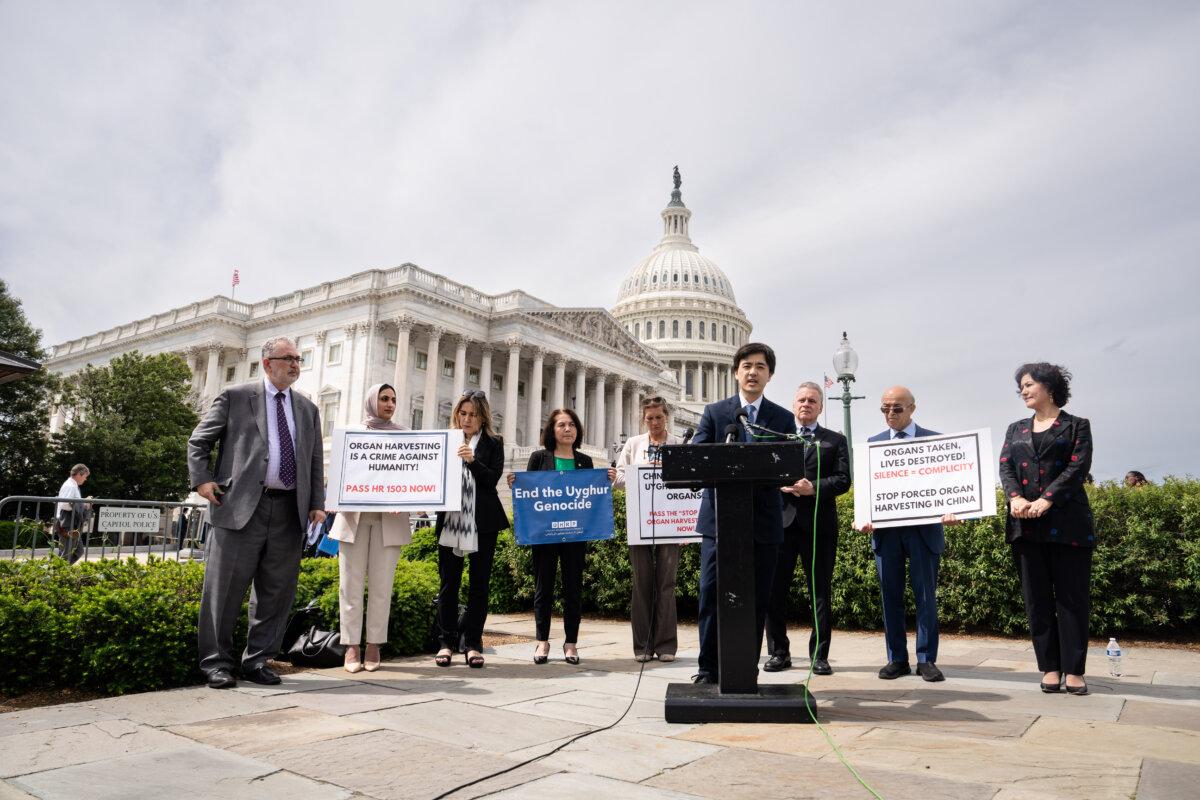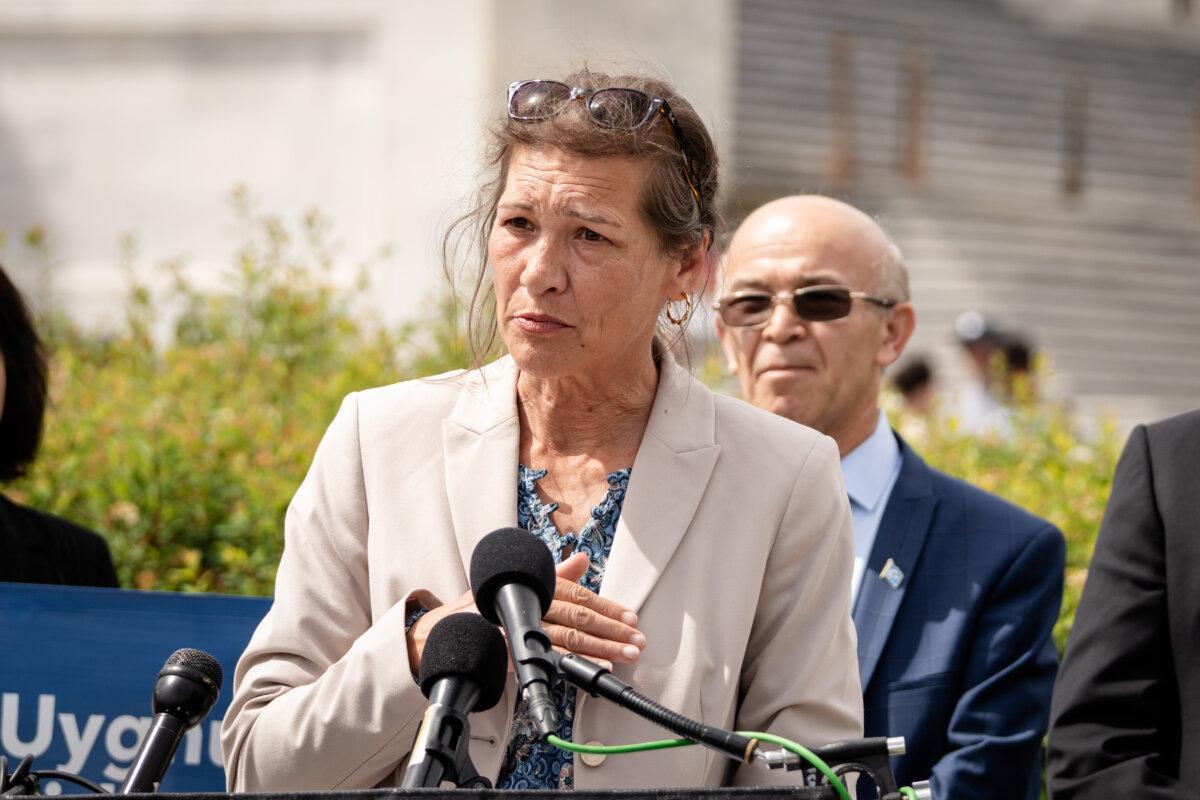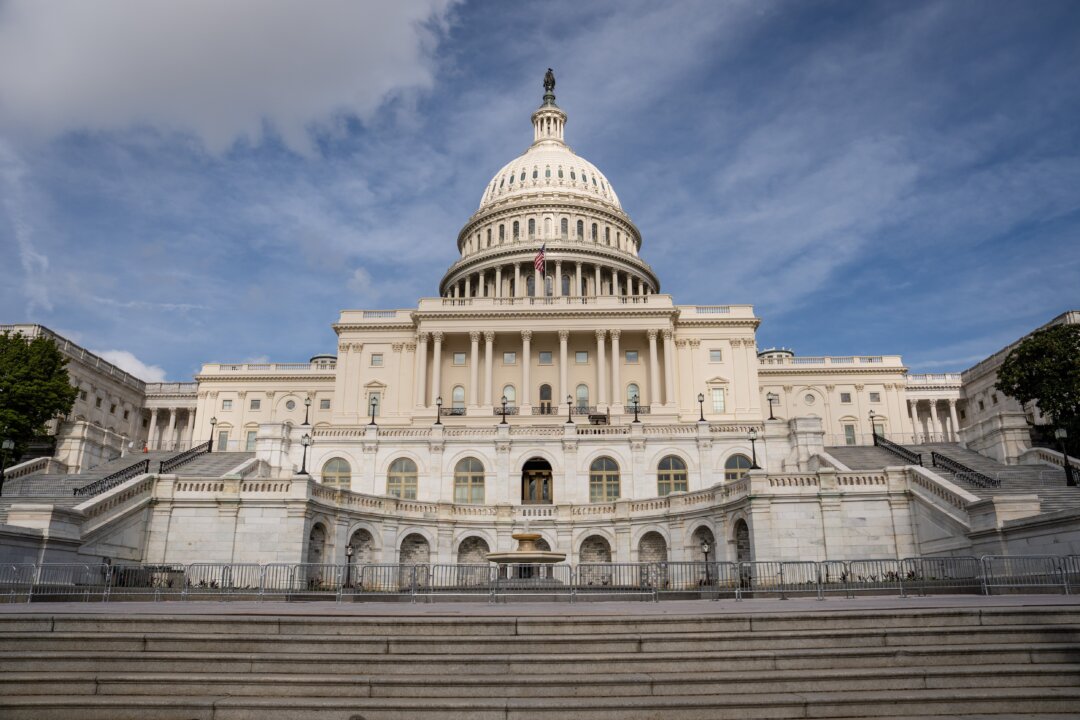‘We need a penalty that’s commensurate with the crime, and the crime is outrageous,’ lead sponsor Rep. Chris Smith (R-N.J.) said.
The House of Representatives voted 406–1 to pass a measure aimed at punishing perpetrators of state-sanctioned forced organ harvesting in China.
The Stop Forced Organ Harvesting Act (HR 1503), led by Reps. Chris Smith (R-N.J.) and William Keating (D-Mass.), takes aim at the organ transplant abuse and the trafficking of people for that purpose.
The act would sanction anyone implicated in the abuse, including members of the Chinese Communist Party, blocking their property and barring them from engaging in U.S. transactions. Such individuals would also have their visas revoked and lose other immigration benefits.
Perpetrators could also face a maximum civil fine of $250,000, and for those engaging in the act willfully, a criminal penalty of up to $1 million and 20 years in prison.
“We need a penalty that’s commensurate with the crime, and the crime is outrageous,” Smith told The Epoch Times ahead of the vote.
The bill would require the president to submit a list of individuals who fund, sponsor, or otherwise facilitate the abuse to the appropriate congressional committee within 180 days of enactment.
It would also require an assessment of each foreign country regarding forced organ harvesting and trafficking in persons. The latter refers to acts of coercion, abduction, deception, fraud, abuse of power or a position of vulnerability, or transactional exchange to exert control over a targeted person.
If enacted into law, the act would make it a U.S. policy to combat the illicit act; to promote the establishment of voluntary organ donation systems with effective enforcement mechanisms in bilateral talks and international health forums; and to promote the dignity and security of human life in line with the Universal Declaration of Human Rights.
Smith said the bill will send a message to anyone who tries to get an organ without caring about its origin.
“You’re going to pay a huge huge penalty for it,” he said.

He added that the bill will also help ensure that all parts of the U.S. government are “very well aware of this horrific reality.”
“It has been stealth. There’s been a cover-up for far too many years by many of the China hands—the people that work on K Street and just talk about trade, trade, trade,” he said. “I’m for trade as long as it’s principled and based on human rights.”
‘Barbaric’
The forced organ harvesting industry saw a boom starting from 2000, as the regime began a full-scale campaign to persecute the spiritual discipline Falun Gong, which by then had an estimated 70 million to 100 million practitioners in China.
In 2019, a London-based people’s tribunal concluded that forced organ harvesting had been carried out in China on a “significant scale” and that the primary targets were Falun Gong practitioners, with Uyghurs, who face continued mass detention and forced labor in Xinjiang, next most at risk of becoming a live organ bank.
Chinese hospitals may advertise waiting times as short as days and weeks to attract foreign tourists desperate for organs.
“That doesn’t happen anywhere in the transplant world. It just doesn’t happen,” Smith said.
“It’s because they say, ‘Oh, this is what we need,’ so they go get that prisoner. They’ve got a large stockpile of information of who’s got what and what their antigens are and everything else,” and the authorities, upon finding a match, would kill the victim to get the organ, he added.
“I’ve never seen anything as barbaric.”
Mark Yang, advocacy officer for the nonprofit Falun Dafa Information Center, said at a news conference on May 7, “The Chinese Communist Party remains one of the most serious threats to human rights.”

‘A Global Problem’
The act’s passage on May 7 makes it the second bill in a week that the legislative body has approved to counter the ongoing abuse in China.
On May 5, the House approved the Falun Gong Protection Act, which directs the United States to raise awareness on the global stage about the persecution, and to coordinate sanctions with allies and multilateral institutions. It also requires three top U.S. agencies to work together on a report clarifying organ transplant practices in China, the Chinese regime’s policies regarding prisoners of conscience, and any U.S. grants supporting China in the organ transplantation field.
At the news conference, Dean Baxendale, a Canadian publisher and CEO of the China Democracy Fund, called for the world to come together to confront Beijing’s human rights abuses.
“This is not an American problem. This is a global problem,” he said.
Rushan Abbas, executive director at Campaign for Uyghurs, echoed his comments.
“The Chinese Communist Party is cashing in on the full-fledged active genocide of the Uyghurs and the Falun Gong practitioners … profiting from an economy built on human suffering,” she said. “The world cannot afford to look away.”

Louisa Greve, an international affairs specialist with the Australian nonprofit International Coalition to End Transplant Abuse in China, said she hopes to see more pressure on U.S. universities and medical journals that are giving a platform to Chinese medical doctors.
It should not be “business as usual” as long as the existing transplant industry in China is carrying out such “systematic human rights crimes,” she said at the news conference.
Concurring with Greve, Piero Tozzi, staff director of the Congressional-Executive Commission on China, said he hopes the bill and its potential penalties will be a deterrent to anyone involved in such criminal actions.

Smith’s bill received overwhelming support when he first brought it into the House in 2023, passing the legislative chamber 413–2 that March. The bill failed to progress in the Senate.
The New Jersey congressman, one of the two longest-serving members in the House, said he’s optimistic the legislation will make more inroads this time around.
“Partisanship should be left at the door when you talk about human rights and people who are being treated like this,” he said. He appealed to the Senate to take it up for the sake of the victims.
“Delay is denial.”

